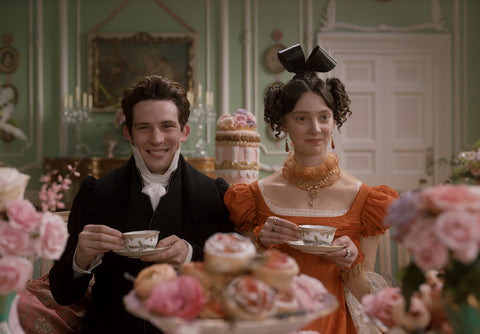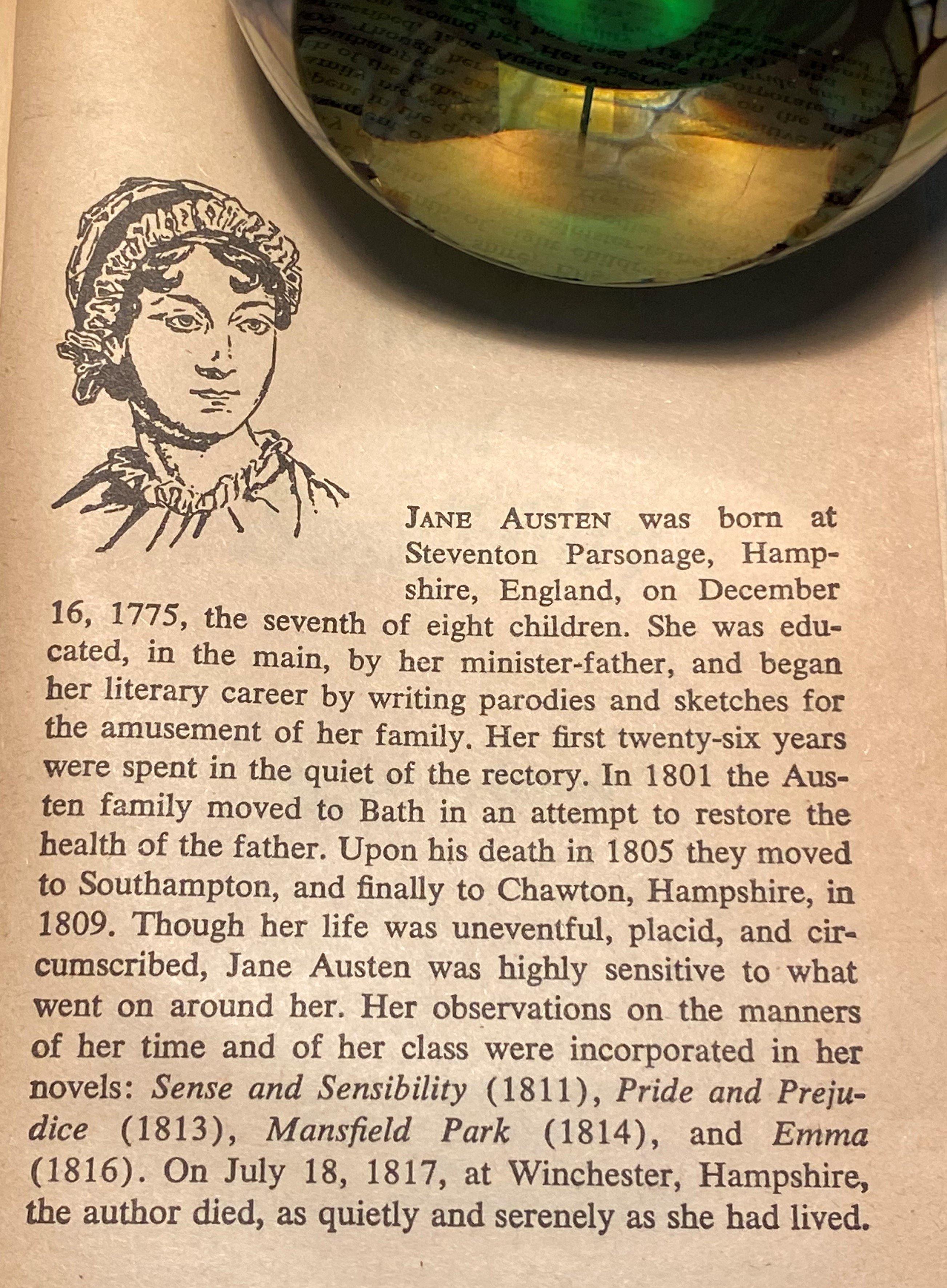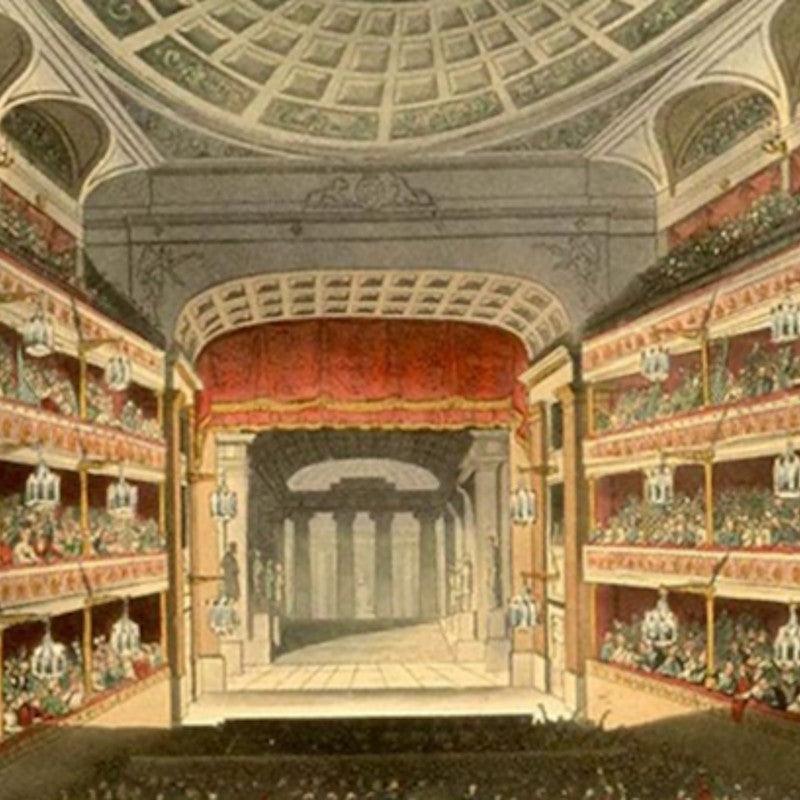Was Mrs Augusta Elton a fraud?

(Page numbers from Nelson’s Gift and Presentation Classics)
On Christmas Eve there was a party at the Westons’ at Randalls. On their way home in the snow Emma and the vicar, Philip Elton, found themselves unexpectedly alone together in the same carriage. (130) Mr Elton told her that he was passionately in love with her and asked her to marry him. Emma very roughly rejected him. (134) She did not go to church on Christmas Day or on the following Sunday. (140) A few days later Mr Elton left to spend a few weeks in Bath. (141)
Four weeks and one day later Mr Cole received a letter from him to say that he was going to be married. The news was broadcast by Mrs Cole and Miss Bates. “A Miss Hawkins, that’s all I know – a Miss Hawkins of Bath.” More news quickly followed and then Mr Elton himself, with further information. “The charming Augusta Hawkins, in addition to all the usual advantages of perfect beauty and merit, was in possession of an independent fortune, of so many thousands as would always be called ten – a point of some dignity, as well as some convenience. The story told well. He had not thrown himself away: he had gained a woman of £10,000, or thereabouts.” (182)
The story told well. Mr Elton told it well. But it is suspiciously vague. How many thousands did she have? How many thousands did Mr Elton think that she had? How wide a margin is there in the word, thereabouts? (Emma was “the heiress of thirty thousand pounds,” not “or thereabouts.”) (137)
“The wedding was no distant event, as the parties had only themselves to please, and nothing but the necessary preparations to wait for.” (182) Why the hurry? Did they not have any relatives to please, who might have enjoyed a big family wedding and perhaps contributed financially? Or was Augusta Hawkins in a hurry to get married before Mr Elton found out that she did not have £10,000, not even thereabouts?
More information turned up and reached Emma. “Miss Hawkins was the youngest of the two daughters of a Bristol – merchant, of course, he must be called. Part of every winter she had been used to spend in Bath; but Bristol was her home, the very heart of Bristol, for though the father and mother had died some years ago, an uncle remained – in the law line: nothing more distinctly honourable was hazarded of him than that he was in the law line; and with him the daughter had lived. Emma guessed him to be the drudge of some attorney, and too stupid to rise. (The Bath Chronicle of 11 January 1810 records the arrival of Mr and Miss Hawkins.) And all the grandeur of the connection seemed dependent on the elder sister, who was very well married to a gentleman in a great way, near Bristol, who kept two carriages! That was the wind-up of the history – that was the glory of Miss Hawkins.” (184)
At first she was Miss Hawkins of Bath. Now she appears to have been Miss Hawkins of central Bristol, with some relatives. Mr Elton did not visit them or know much about them. They were not invited to the wedding, though, if her brother-in-law had two carriages, it would have been nice to borrow one of them for the occasion. Was Frank Churchill there? “Will Mr Frank Churchill pass through Bath as well as Oxford?” was a question, however, which did not augur much. (190)
Mrs Elton was first seen at church. Emma took Harriet to visit the new bride. When the visit was returned, Harriet was not at Hartfield, Mr Woodhouse was present to engage Mr Elton, and Emma had a quarter of an hour of the lady’s conversation to herself. “The rich brother-in-law near Bristol was the pride of the alliance, and his place and his carriages were the pride of him. (275) The very first subject after being seated was Maple Grove, ‘my brother Mr Suckling’s seat;’ a comparison of Hartfield to Maple Grove. The grounds of Hartfield were small, but neat and pretty; and the house was modern and well built. Mrs Elton seemed most favourably impressed by the size of the room, the entrance, and all that she could see or imagine. ‘Very like Maple Grove indeed!’ She was quite struck by the likeness. ‘That room was the very shape and size of the morning room at Maple Grove – her sister’s favourite room.’ Mr Elton was appealed to. ‘Was not it astonishingly like?’ She could really almost fancy herself at Maple Grove. (276)
(Though she appealed to Mr Elton she did not wait for him to reply. He was engaged in conversation with Mr Woodhouse. If he had visited Maple Grove he must have noticed that it was just like Hartfield and been impressed by it. But in fact in his letters from Bath he had not mentioned Maple Grove or Mr Suckling at all, just the two carriages, which Mrs Elton had told him about, but which he had not seen.)
“And the staircase. You know, as I came in, I observed how very like the staircase was – placed exactly in the same part of the house. I really could not help exclaiming! I assure you, Miss Woodhouse, it is very delightful to me to be reminded of a place I am so extremely partial to as Maple Grove. I have spent so many happy months there!” – with a little sigh of sentiment. “A charming place, undoubtedly. Everybody who sees it is struck by its beauty; but to me it has been quite a home.” (276)
(Mr Elton had not been struck by its beauty and had never said so. He had never seen it. Mrs Elton calls Maple Grove her home. “I have always been used to a very musical society, both at Maple Grove and in Bath.” (280) Her father is forgotten. He had been in trade, like Mr Cole, socially beneath her now. Her uncle, ‘in the law line,’ with whom she had lived, is never mentioned, now or later. Emma’s brother-in-law, Mr John Knightley, was a successful lawyer. It was safer to avoid awkward questions. Mr Suckling, a gentleman with a private income and a house inherited from his father, (317) was in a higher social class and Emma could be compared with him.)
“So extremely like Maple Grove! And it is not merely the house; the grounds, I assure you, as far as I could observe, are strikingly like. The laurels at Maple Grove are in the same profusion as here, and stand very much in the same way – just across the lawn, and I had a glimpse of a fine large tree, with a bench round it, which put me so exactly in mind! My brother and sister will be enchanted by this place. People who have extensive grounds themselves are always pleased with anything in the same style.” (276)
(This long and detailed list of similarities is unbelievable. Mrs Elton must have made it up on the spur of the moment. Maple Grove did not exist. No-one, apart from Mrs Elton, had ever been there, and the inhabitants of Maple Grove never turned up at Highbury or anywhere else in the novel. But if anyone asked Mrs Elton about Maple Grove, she needed to have an answer and this was the simplest way of providing one.)
“My brother and sister have promised us a visit in the spring or summer at farthest,” continued Mrs Elton; “and that will be our time for exploring. Mr Suckling is extremely fond of exploring.” (277)
Later: “In this state of schemes, and hopes, and connivance, June opened on Hartfield. To Highbury, in general, it brought no material change. The Eltons were still talking of a visit from the Sucklings, and of the use to be made of their barouche-landau.” (349)
“After being long fed with hopes of a speedy visit from Mr and Mrs Suckling, the Highbury world were obliged to endure the mortification of hearing that they could not come till the autumn.” (359)
(They never came, though Mr Suckling was extremely fond of exploring. (277) “But what is distance, Mr Weston, to people of large fortune? You would be amazed to hear how my brother, Mr Suckling, flies about. You will hardly believe me, but twice in one week he and Mr Bragge went to London and back again with four horses.” (312) Poor horses! Which carriage did they take? Clearly Mrs Elton had no idea about horses and carriages. But if Mr Suckling could get to London, Highbury was only sixteen miles away, (3) but he never got there.
Mrs Elton needed to be careful about what she said about Maple Grove and Hartfield. Hartfield was very like Maple Grove, but, in spite of its separate lawn, and shrubberies, and name, it really belonged to Highbury, (3) whereas “Nothing can stand more retired from the road than Maple Grove. Such an immense plantation all round it! You seem shut out from everything – in the most complete retirement.” (313) No-one noticed, at least no-one commented.
On one occasion she was caught out by Jane Fairfax. “I do believe,” said Mrs Elton, “this is the most troublesome parish that ever was. We never heard of such things at Maple Grove.”
“Your parish there was small,” said Jane.
“Upon my word, my dear, I do not know, for I never heard the subject talked of.”
“But it is proved by the smallness of the school, which I have heard you speak of as under the patronage of your sister and Mrs Bragge – the only school, and not more than five-and-twenty children.”
“Ah! You clever creature, that’s very true. What a thinking brain you have!” (469) And she quickly changed the subject.
-----
First, we had Mr Elton’s story. Then we had Mrs Elton’s rather different story. Lastly, we have a third story, from Frank Churchill. Apparently, he and Mrs Elton had known each other, perhaps at Bath, and there was some secret between them, but that was not known in Highbury. At the ball at the Crown Frank and Emma arrived before the Eltons.
“Frank was standing by her, but not steadily; there was a restlessness which showed a mind not at ease. He was looking about, he was going to the door, he was watching for the sound of other carriages – impatient to begin, or afraid of being always near her.
“Mrs Elton was spoken of. ‘I think she must be here soon,’ said he. ‘I have a great curiosity to see Mrs Elton, I have heard so much of her. It cannot be long, I think, before she comes.’
“A carriage was heard. He was on the move immediately; but coming back, said, --
‘I am forgetting that I am not acquainted with her. I have never seen either Mr or Mrs Elton. I have no business to put myself forward.’ (325)
He had more to say at Box Hill after the husband and wife had walked off. ‘Happy couple!’ he said, as soon as they were out of hearing; ‘how well they suit one another! Very lucky, marrying as they did, upon an acquaintance formed only in a public place! They only knew each other, I think, a few weeks in Bath! Peculiarly lucky! For as to any real knowledge of a person’s disposition that Bath, or any public place can give – it is all nothing; there can be no knowledge. It is only by seeing women in their own homes, among their own set, just as they always are, that you can form any just judgment. Short of that, it is all guess and luck, and will generally be ill-luck. How many a man has committed himself, on a short acquaintance, and rued it all the rest of his life!’
Miss Fairfax, who had seldom spoken before, except among her own confederates, spoke now.
“Such things do occur, undoubtedly.” She was stopped by a cough. Frank Churchill turned towards her to listen.
“You were speaking,” said he gravely. She recovered her voice.
“I was only going to observe that though such unfortunate circumstances do sometimes occur both to men and women, I cannot imagine them to be very frequent. A hasty and imprudent attachment may arise, but there is generally time to recover from it afterwards. I would be understood to mean that it can be only weak, irresolute characters (whose happiness must be always at the mercy of chance) who will suffer an unfortunate acquaintance to be an inconvenience, an oppression, for ever.” (381)
Why had Mr Elton been in such a hurry to marry her, without visiting her relatives or finding more about them, and without more precise information about her wealth? For the answer we must go back to Christmas Eve, when Mr Elton and Emma travelled home alone together in the same carriage. (131) Emma found “her hand seized, her attention demanded, and Mr Elton actually making violent love to her.” The expression is striking for the modern reader. For Jane Austen the meaning was much weaker (though the use of the word, violent, is still surprising). All he had done was to take her hand and perhaps pull her towards him for a kiss. But this was not a polite proposal to the heiress of thirty thousand pounds. This was physical desire for a handsome young twenty-year-old lady, dressed for a Christmas party. He was rejected and shortly afterwards left for Bath. Perhaps it was the same physical desire which led him to marry Augusta Hawkins so quickly without meeting her family.
Poor Mr Elton!
David Pugsley is the Hon Archivist of the Western Circuit, an organisation for barristers between Gloucester and Winchester and Land’s End. He gives talks and writes articles about the history of colourful barristers and leading criminal cases, mainly murders, and the law of duelling in the area of the Circuit. He read Emma with a lawyer’s critical eye, looking at the evidence. He would have liked to cross-examine Augusta Elton.
He is making a detailed study of the trial at Taunton Assizes in March 1800 of Jane Leigh Perrot, Jane Austen’s aunt, for shoplifting in Bath in August 1799. He has already written several articles about it in England and America. There are more to come.
If you don't want to miss a beat when it comes to Jane Austen, make sure you are signed up to the Jane Austen newsletter for exclusive updates and discounts from our Online Gift Shop.



Leave a comment
This site is protected by hCaptcha and the hCaptcha Privacy Policy and Terms of Service apply.